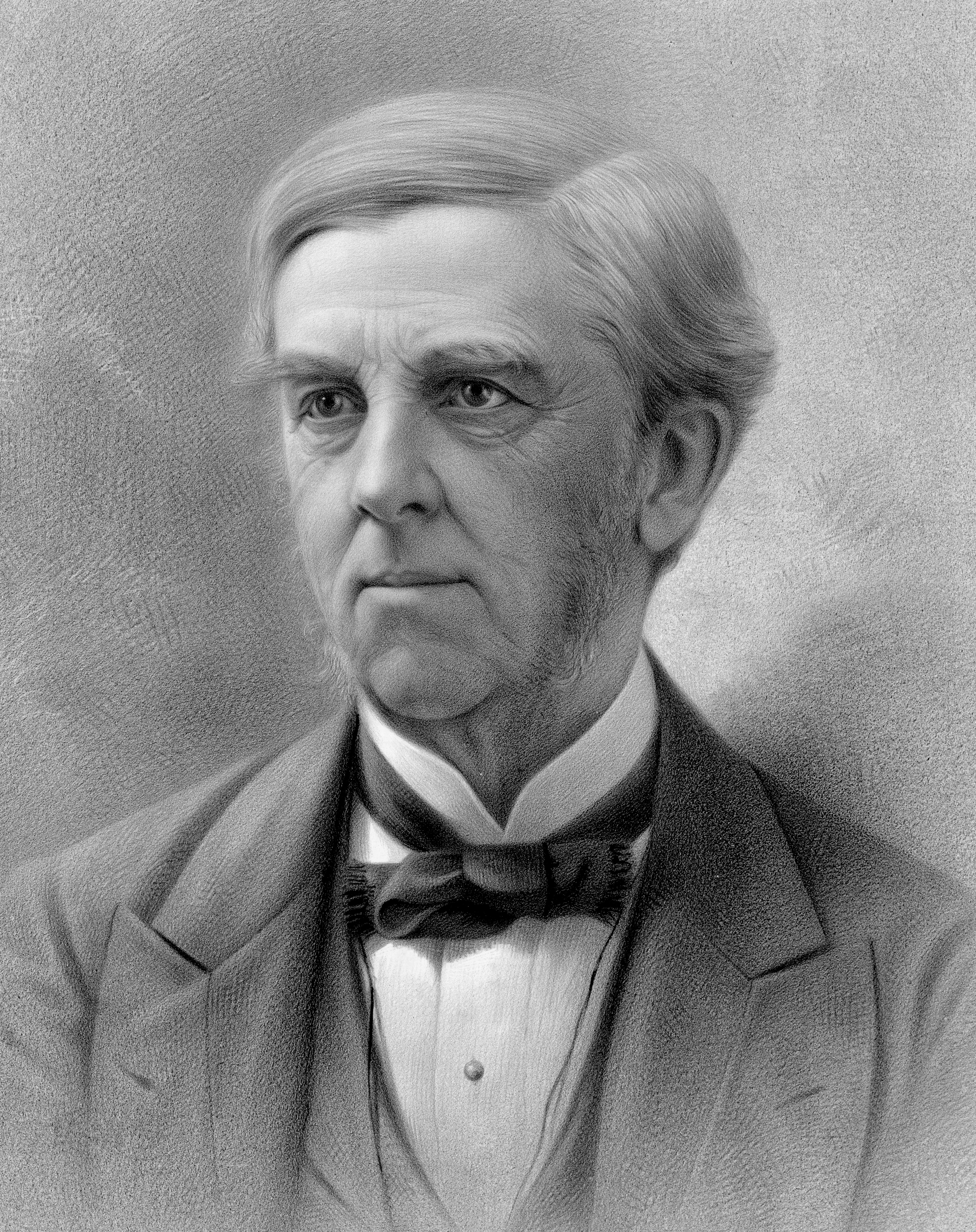I like, at times, to hear the steeples' chimes
With sober thoughts impressively that mingle;
But sometimes, too, I rather like - don't you? -
To hear the music of the sleigh bells' jingle.
I like full well the deep resounding swell
Of mighty symphonies with chords inwoven;
But sometimes, too, a song of Burns - don't you?
After a solemn storm-blast of Beethoven.
Good to the heels the well-worn slipper feels
When the tired player shuffles off the buskin;
A page of Hood may do a fellow good
After a scolding from Carlyle or Ruskin.
Some works I find, - say Watts upon the Mind, -
No matter though at first they seemed amusing,
Not quite the same, but just a little tame
After some five or six times' reperusing.
So, too, at times when melancholy rhymes
Or solemn speeches sober down a dinner,
I've seen it 's true, quite often, - have n't you? -
The best-fed guests perceptibly grow thinner.
Better some jest (in proper terms expressed)
Or story (strictly moral) even if musty,
Or song we sung when these old throats were young, -
Something to keep our souls from getting rusty.
The poorest scrap from memory's ragged lap
Comes like an heirloom from a dear dead mother -
Hush! there's a tear that has no business here,
A half-formed sigh that ere its birth we smother.
We cry, we laugh; ah, life is half and half,
Now bright and joyous as a song of Herrick's,
Then chill and bare as funeral-minded Blair;
As fickle as a female in hysterics.
If I could make you cry I would n't try;
If you have hidden smiles I'd like to find them,
And that although, as well I ought to know,
The lips of laughter have a skull behind them.
Yet when I think we may be on the brink
Of having Freedom's banner to dispose of,
All crimson-hued, because the Nation would
Insist on cutting its own precious nose off,
I feel indeed as if we rather need
A sermon such as preachers tie a text on.
If Freedom dies because a ballot lies,
She earns her grave; 't is time to call the sexton!
But if a fight can make the matter right,
Here are we, classmates, thirty men of mettle;
We're strong and tough, we've lived nigh long enough, -
What if the Nation gave it us to settle?
The tale would read like that illustrious deed
When Curtius took the leap the gap that filled in,
Thus: "Fivescore years, good friends, as it appears,
At last this people split on Hayes and Tilden.
"One half cried, 'See! the choice is S. J. T.!'
And one half swore as stoutly it was t' other;
Both drew the knife to save the Nation's life
By wholesale vivisection of each other.
"Then rose in mass that monumental Class, -
'Hold! hold!' they cried, 'give us, give us the daggers!'
'Content! content!' exclaimed with one consent
The gaunt ex-rebels and the carpet-baggers.
"Fifteen each side, the combatants divide,
So nicely balanced are their predilections;
And first of all a tear-drop each lets fall,
A tribute to their obsolete affections.
"Man facing man, the sanguine strife began,
Jack, Jim and Joe against Tom, Dick and Harry,
Each several pair its own account to square,
Till both were down or one stood solitary.
"And the great fight raged furious all the night
Till every integer was made a fraction;
Reader, wouldst know what history has to show
As net result of the above transaction?
"Whole coat-tails, four; stray fragments, several score;
A heap of spectacles; a deaf man's trumpet;
Six lawyers' briefs; seven pocket-handkerchiefs;
Twelve canes wherewith the owners used to stump it;
"Odd rubber-shoes; old gloves of different hues;
Tax - bills, - unpaid, - and several empty purses;
And, saved from harm by some protecting charm,
A printed page with Smith's immortal verses;
"Trifles that claim no very special name, -
Some useful, others chiefly ornamental;
Pins, buttons, rings, and other trivial things,
With various wrecks, capillary and dental.
"Also, one flag, - 't was nothing but a rag,
And what device it bore it little matters;
Red, white, and blue, but rent all through and through,
'Union forever' torn to shreds and tatters.
"They fought so well not one was left to tell
Which got the largest share of cuts and slashes;
When heroes meet, both sides are bound to beat;
They telescoped like cars in railroad smashes.
"So the great split that baffled human wit
And might have cost the lives of twenty millions,
As all may see that know the rule of three,
Was settled just as well by these civilians.
"As well. Just so. Not worse, not better. No,
Next morning found the Nation still divided;
Since all were slain, the inference is plain
They left the point they fought for undecided."
If not quite true, as I have told it you,
This tale of mutual extermination,
To minds perplexed with threats of what comes next,
Perhaps may furnish food for contemplation.
To cut men's throats to help them count their votes
Is asinine - nay, worse - ascidian folly;
Blindness like that would scare the mole and bat,
And make the liveliest monkey melancholy.
I say once more, as I have said before,
If voting for our Tildens and our Hayeses
Means only fight, then, Liberty, good night!
Pack up your ballot-box and go to blazes.
Unfurl your blood-red flags, you murderous hags,
You petroleuses of Paris, fierce and foamy;
We'll sell our stock in Plymouth's blasted rock,
Pull up our stakes and migrate to Dahomey!
How Not To Settle It
Oliver Wendell Holmes
Suggested Poems
Explore a curated selection of verses that share themes, styles, and emotional resonance with the poem you've just read.
